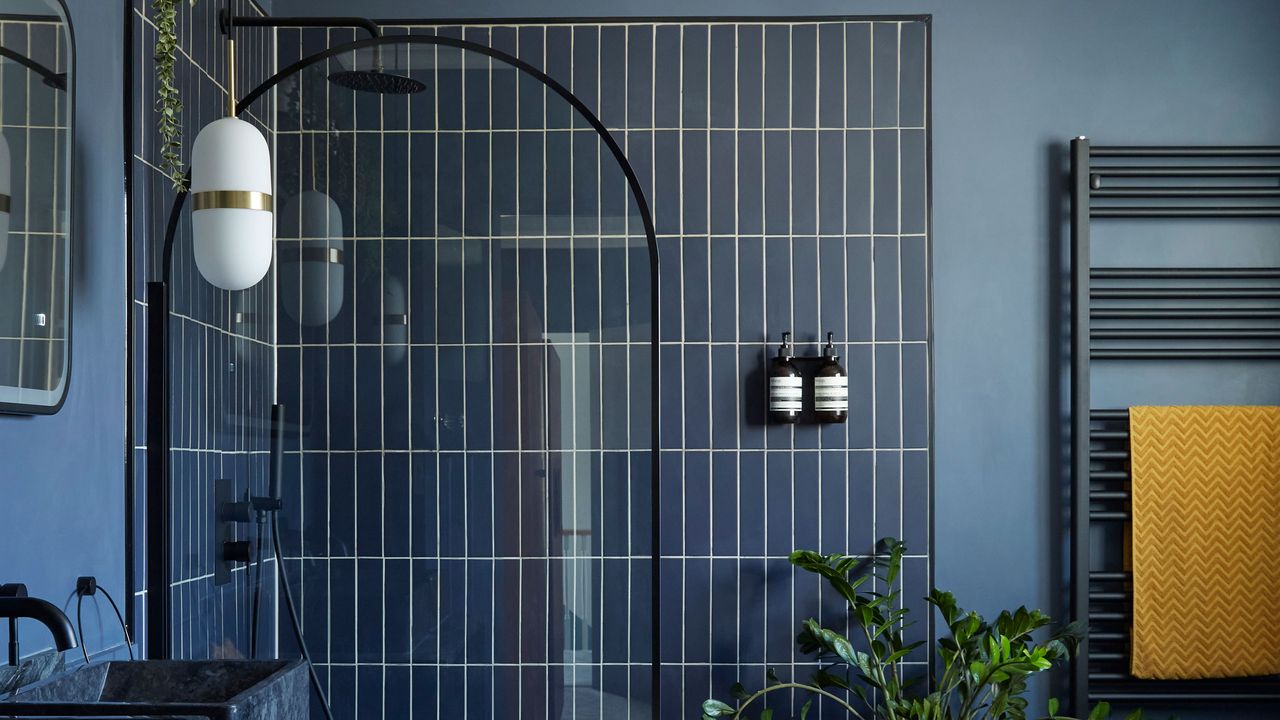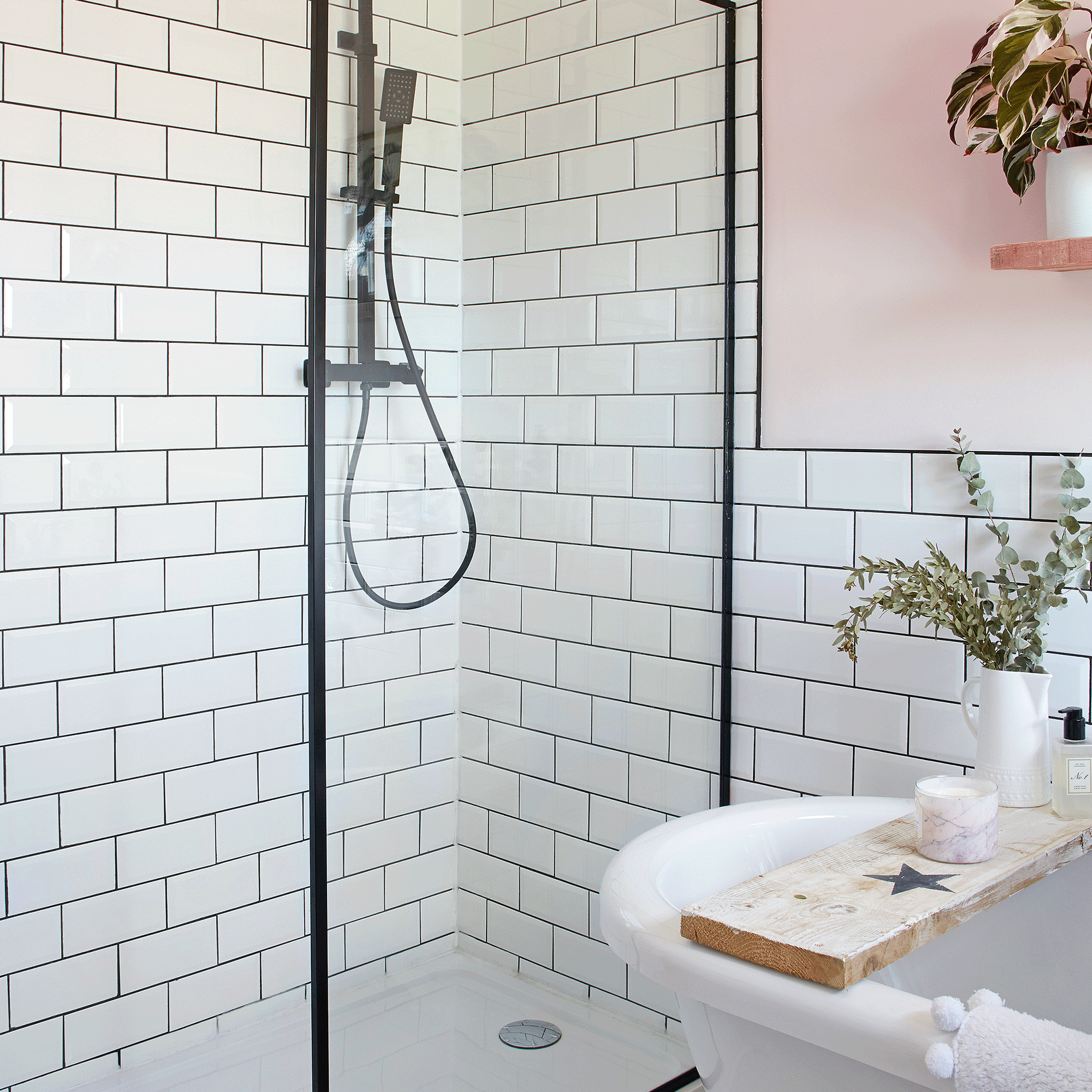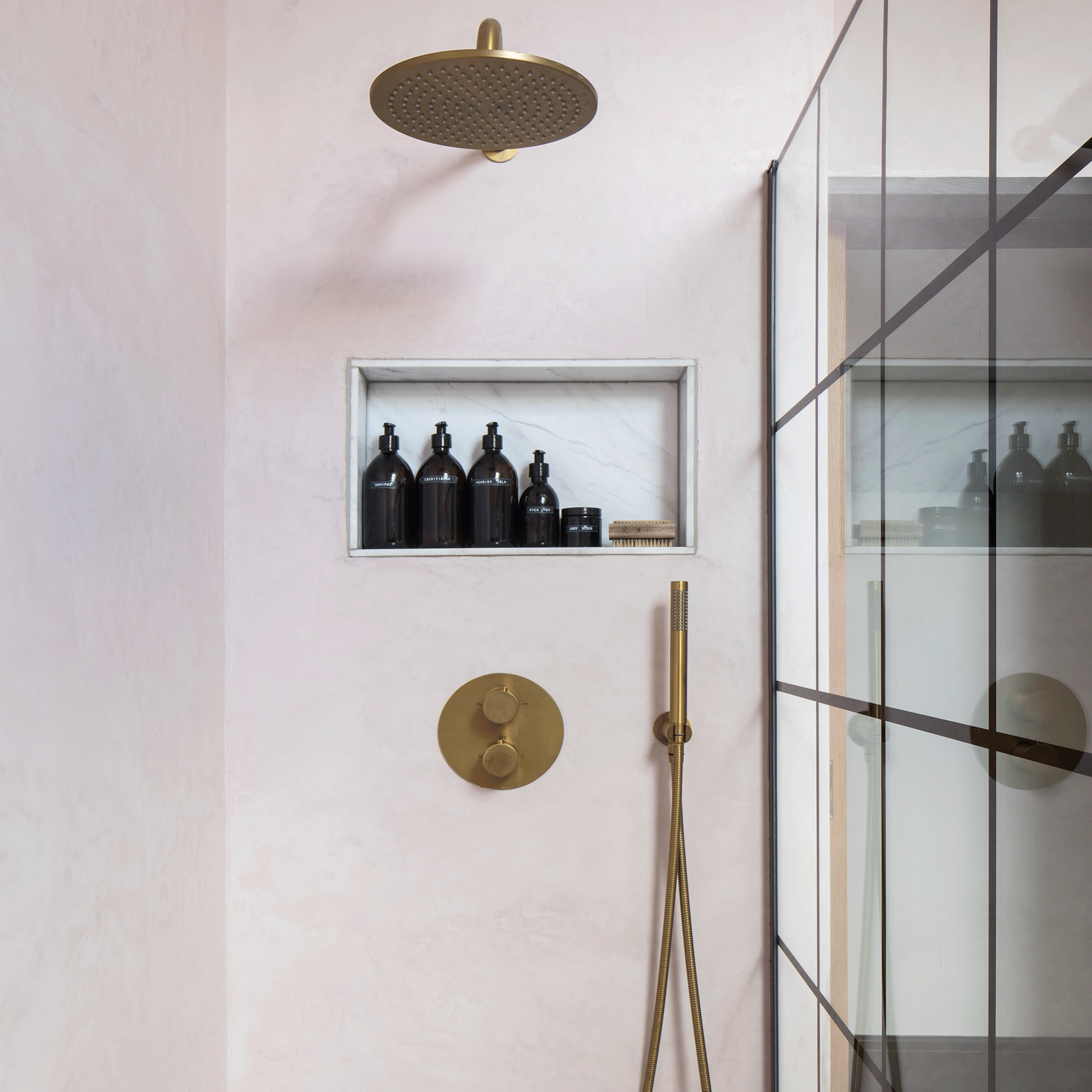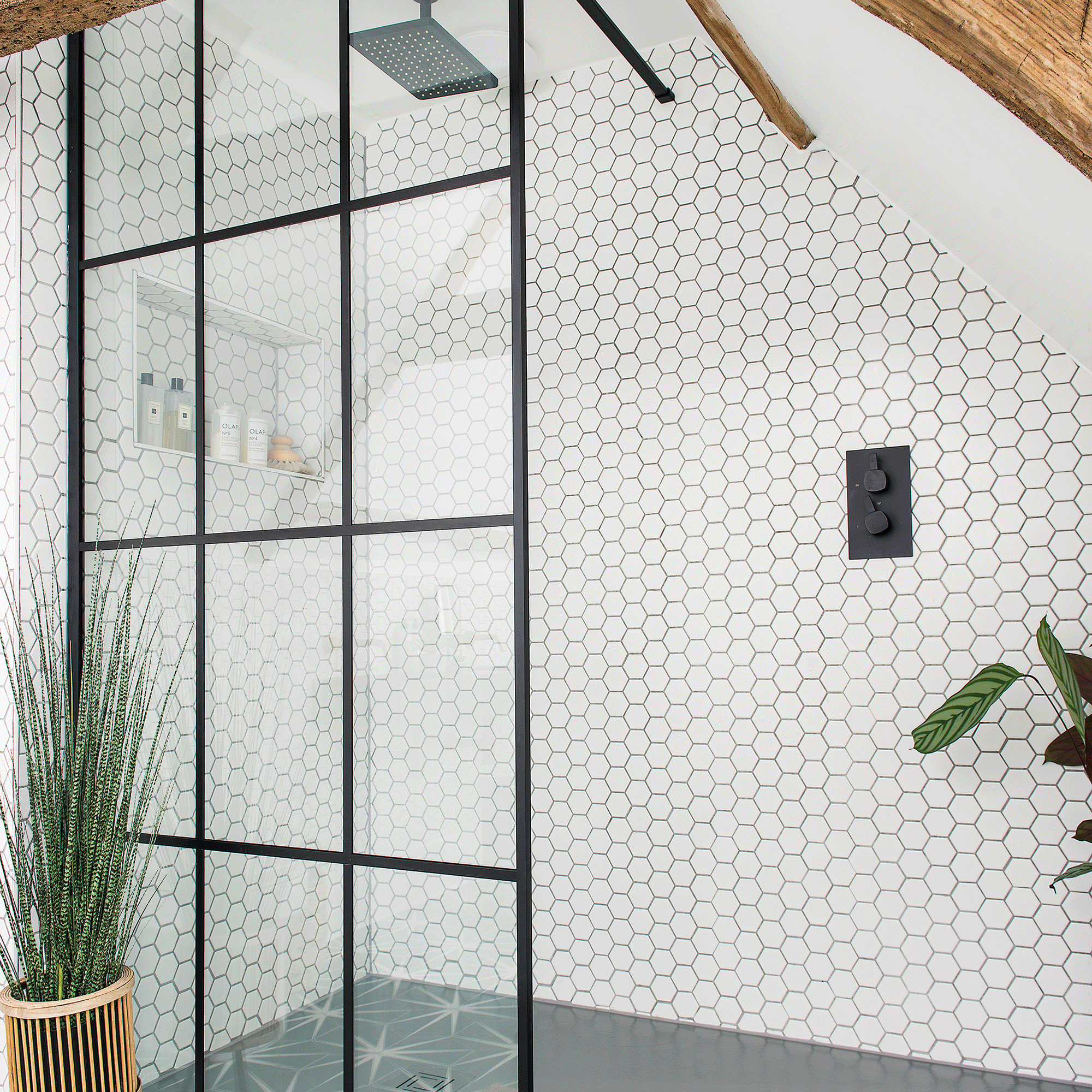How much does it cost to run a shower? This is how much your morning shower really affects your energy bills
We've calculated how much it costs to run a shower following the new October energy price cap


Recent updates
This article has been updated to show the new cost to run based on the October Energy Price Cap. It has also been fact-checked and any out-of-date information removed.
Most people can’t start their day without a shower. Whether the hot water wakes you up pre-coffee or washes off the sweat from your morning workout, this shower is a must for many across the UK. But in a world where energy bills are constantly increasing, you might wonder: How much does it cost to run a shower?
Your bathroom probably isn’t a place where you’d think you could save energy at home. Instead, you might focus your attention on choosing the most efficient way to heat a home or unplugging appliances when you’re not using them. But it’s actually very easy to use (and waste) a lot of energy in your bathroom - and your shower is one of the biggest culprits.
But how much does it really cost to run a shower? Well, we’ve decided to do the calculations for you based on whether you use an electric or gas shower - and even included some handy tips on how you can bring that price down in the long run.

Average shower running costs
When understanding how much it costs to run a shower, you have to take stock of the current energy prices and energy cap. Ofgem determines this every three months, which means the cost to run a shower will also change every three months.
For the examples below, we've used the October 2024 energy price cap, which is set at £1,717 per year for a typical household that uses electricity and gas and pays by Direct Debit.
Of course, you also need to take into account the daily standing charges for gas and electricity - which currently stand at 60.99p for electricity and 31.66p for gas.
How much does it cost to run an electric shower?
While the amount of energy a shower will use varies on the individual appliance, an electric shower can use an average of 8.5kW of energy.
Get the Ideal Home Newsletter
Sign up to our newsletter for style and decor inspiration, house makeovers, project advice and more.
With this in mind, to work out the cost of using an electric shower, you need to multiply how much energy it is using, so 8.5, by the current cost of electricity - which, at the time of writing, is 24.5p per kWh, which we’ll round up to 0.25.
Once you’ve done this divide it by 60 and then multiply the total by the length of time you spend in the shower. So, if we assume that the average person takes a 10-minute shower, you can expect to spend around 35p per shower on electricity.

This is based on the calculation:
Power (8.5kW) x cost per kWh (0.25) / 60 = 0.035, the cost per minute.
Then, multiply the cost per minute (0.035) by the number of minutes each activity is (10) = 0.35, the total per single use.
However, Nigel Best, director at Electrician Courses 4U, also reminds us that you'd also need to account for the cost of water, as a 10-minute shower uses approximately 150 litres of water.
Discovery Water estimates that two litres of water from the tap costs around a third of a penny, therefore, we can calculate the cost of water at 25p per shower.
So, when you add the cost of electricity per shower and the cost of water it brings us to 60p per shower for an electric shower.
How much does it cost to run a gas shower?
To understand the true difference between gas and electric showers, we’re going to base our calculations on the assumption that your gas shower also uses an average of 8.5kW of energy - which is about right, anyway.
Thankfully, calculating the cost of a gas shower is pretty much the same as doing so for an electric shower. Multiply how much energy it is using, 8.5, by the cost of gas, which currently stands at 6.24p per kWh, which we’ll round down to 0.06.
Then, divide that by 60 to find the cost to run per minute and then multiply that figure by the amount of time it's being used.
Again, if we assume that a person takes a 10-minute shower, then this brings us to just under 9p per shower. But of course, with the added cost of water, this totals around 34p per shower for gas showers.

But while you can use these figures to understand a little more about your energy bills and your energy usage if your gas boiler powers your shower, it’s also important to take these numbers with a pinch of salt. As Nicholas Auckland, heating and energy expert at Trade Radiators, says, ‘The cost of running a boiler-powered shower will depend on the efficiency of your boiler, so it's hard to work out.’
If your boiler is old and inefficient, it will ultimately cost you more. That’s why it’s so important to keep on top of regular boiler servicing and replace your boiler when it shows signs of slowing down.
How to reduce the cost of running a shower
1. Switch your shower to a gas model
If you're planning to revamp your bathroom and try out some new shower ideas, it could be worth considering your shower model. 'To save money, see if you can switch your shower to a model that heats your water with gas, which is currently 2.75 times cheaper than an electric model,' suggests Ben Dhesi, creator of HUGO.

2. Be strict on the time you spend in the shower
Emily Brady, marketing and content manager at Yorkshire Water suggests making small changes so you can save up to £700 per year. 'Instead of having an eight-minute shower, cut this in half to four minutes. By having 4-minute showers instead, you could save £128.18 on showers per year,' she explains.
And mind you, this is based on 8-minute showers. So if you went from your typical 10-minute shower to a 4-minute one instead, think about the savings. Try it and monitor it on a smart meter to see for yourself.
We know it feels like a difficult task, especially if you're one to get distracted. 'One way to counteract this is to set a timer on your phone for four minutes or to play a four-minute long song so you know once it’s over it’s time to get out,' suggests Nigel Best at Electrician Courses 4U.
'Alternatively, try having a navy shower. This is a wash which lasts three minutes or under and comes from crew members having to conserve water and energy on naval ships,' he continues.
'You first get wet, then turn off the water when using soap and shampoo to clean yourself. Then once you’ve scrubbed and are clean you turn the water back on to rinse off the soap.
3. Upgrade your shower head
'You may enjoy a power shower but you probably won’t when you realise how much more water they use,' warns Nigel Best at Electrician Courses 4U. 'Energy efficient shower heads can save up to 50% more water compared to regular shower heads and are a relatively inexpensive purchase.'
Ben Dhesi, creator of HUGO explains that these shower heads 'restrict your water flow while increasing your water pressure, meaning you have a more efficient shower that needs a fraction of the water.'
'On average, these can take your water usage down from around 150L for a 10-minute shower to as low as 40L, lowering your bill significantly.'

4. Turn the temperature down
When was the last time you really took a look at the temperature of your shower? Most people simply turn the dial until it feels about right, but making small changes to the temperature can make a big difference to the cost of running a shower.
Nicholas says, ‘Lowering the temperature slightly can reduce energy use, especially for electric showers as they heat the water instantly.’
So, try it out and see how you feel. You might not even notice the temperature change, but you’ll definitely notice a change in your energy bills.
5. Switch to a water meter
Using a water meter is one of the best ways to save on your water bills, ultimately bringing down the cost of running a shower. Of course, we understand that this isn’t an option for everyone, as this is largely down to your water provider - but it may be worth switching. Or it might not.
‘If you're on a water meter, you'll only pay for the water that you actually use rather than a set tariff,’ explains Nicholas. ‘If you have a small home with just one shower and 1 or 2 residents, then it might be best financially to switch to a water meter.
‘Basically the less water you use, the more beneficial it might be to switch to a water meter. However, if you have a large home with multiple residents and multiple showers, then a water meter might mean that you're paying more than you have to. Switching to a set tariff is best.’
So, it’s down to you to think about your water usage and determine whether it’s worth switching or not.

6. Make use of the facilities you have access to
'If you have a gym membership or access to showers elsewhere, it’s well worth taking advantage of this. Set off with a spare set of clothes in your bag and make the most of the facilities you have access to,' says Nigel Best at Electrician Courses 4U.
This isn't to say that you should buy a whole new gym membership just to take a shower, but if going to the gym is already part of your daily routine, it could be worth considering to get an extra bang for your buck.
FAQs
Is it cheaper to have a bath or shower UK?
Generally, most experts agree that it’s cheaper to have a shower in the UK, based on energy rates and water usage.
However, it’s important to note that this is all dependent on the individual and their washing habits. For example, a 30-minute shower probably would cost you more than running a bath. But if you stick to a normal 5-10 minute shower, it’ll be much less.
Because of this, you should choose the best option for your washing habits and your budget. If you have money to spare, you can treat yourself to a bath or an extra-long shower. But if you want to save money on energy bills, stick to a shorter shower.
Does eco mode on shower save electricity?
Yes, it does! If you’re looking to upgrade your shower, buying one with eco modes is well worth buying.
Nicholas Auckland from Trade Radiators says, ‘Eco modes use less energy by either reducing water temperature or limiting flow. They're most beneficial in summer when you won't need the shower to be turned up as high.’
Doing this will save you electricity and ultimately reduce your energy bills, which can make a big difference in the long run.
Overall, yes, taking a shower can be costly but it's a cost we're all pretty much willing to pay so as to not sacrifice our hygiene and comfort. However, we can help run these costs down by being a little more mindful.

Jullia is Ideal Home’s Junior Writer and the Ideal Home Certified Expert in Training on Vacuums, having spent over 60 hours testing different models. She’s always loved all things homes and interiors, graduating with a bachelor’s degree in Architectural Studies from the University of Nottingham where her love for writing blossomed following her internship at ArchDaily. Now focused on home tech and cleaning, Jullia works on writing features and explainers to help people make the most of their home appliance investments, putting the newest launches through their paces. When she isn’t writing, she loves exploring the city, coffee shop hopping, and losing hours to a cosy game or book.
- Lauren BradburyContributor
-
 The RSPB warns not to use bird tables as it pulls stock offline due to deadly disease - these are the feeders you should use instead
The RSPB warns not to use bird tables as it pulls stock offline due to deadly disease - these are the feeders you should use insteadThe charity has warned against the spread of disease within bird populations
By Kezia Reynolds
-
 Where should you put plug sockets in a kitchen? The 4 rules to follow for a practical cooking space
Where should you put plug sockets in a kitchen? The 4 rules to follow for a practical cooking spaceThe 4 areas to consider and planning considerations to follow - approved by experts
By Holly Cockburn
-
 When to deadhead pansies to encourage a new flush of beautiful blooms, according to gardening experts
When to deadhead pansies to encourage a new flush of beautiful blooms, according to gardening expertsHere are the telltale signs that your pansies need deadheading, to enjoy these flowers at their best
By Katie Sims